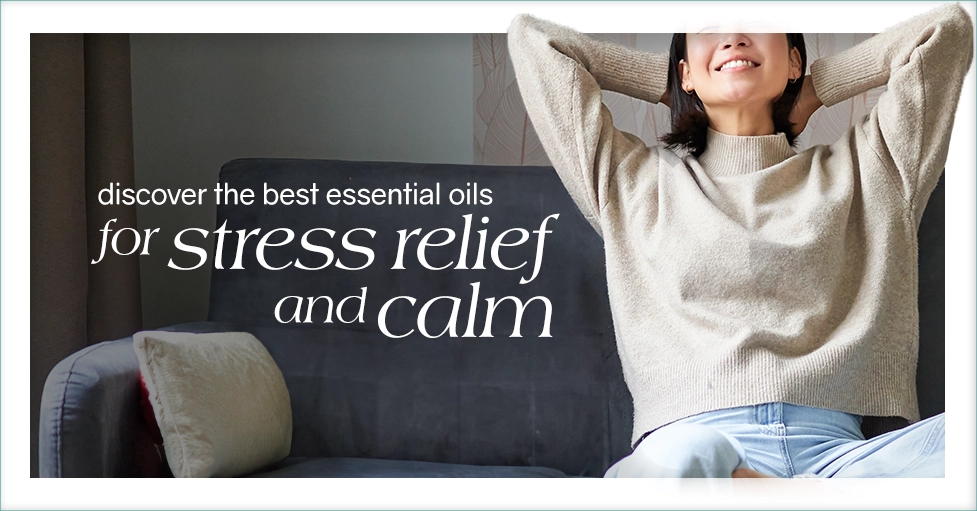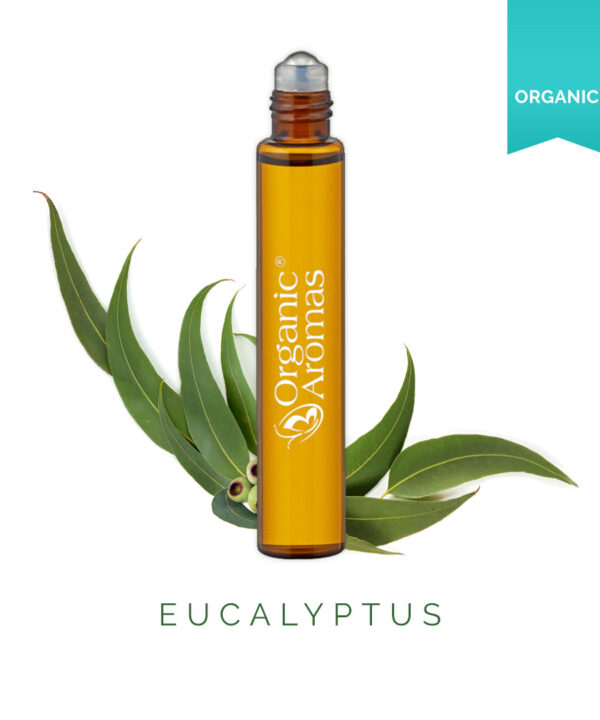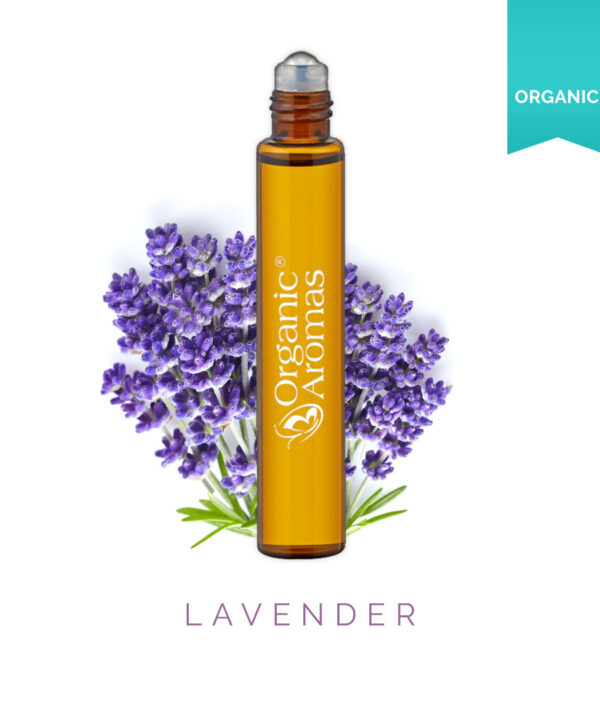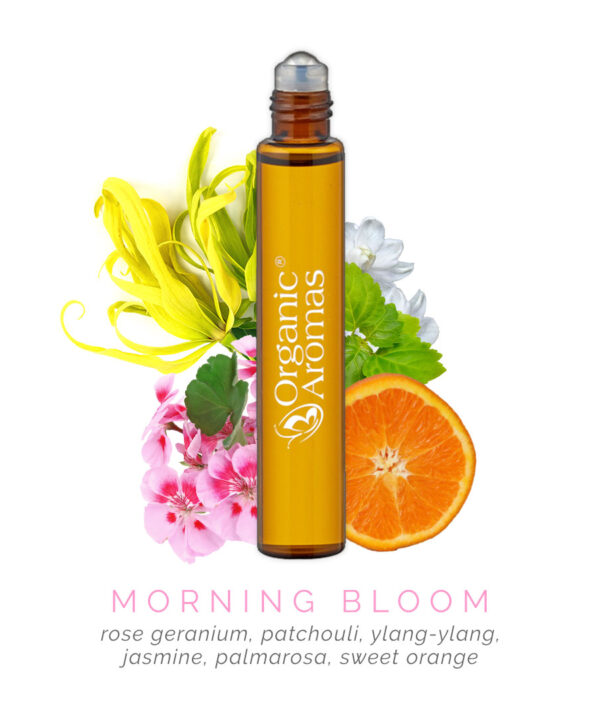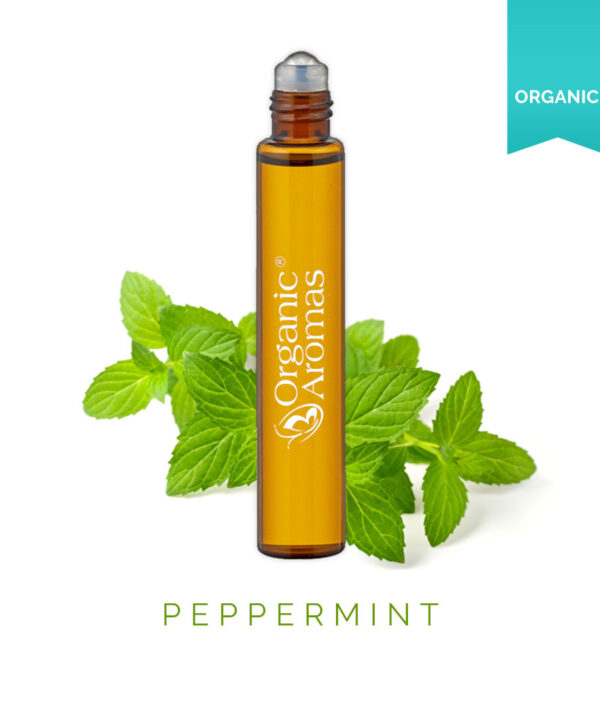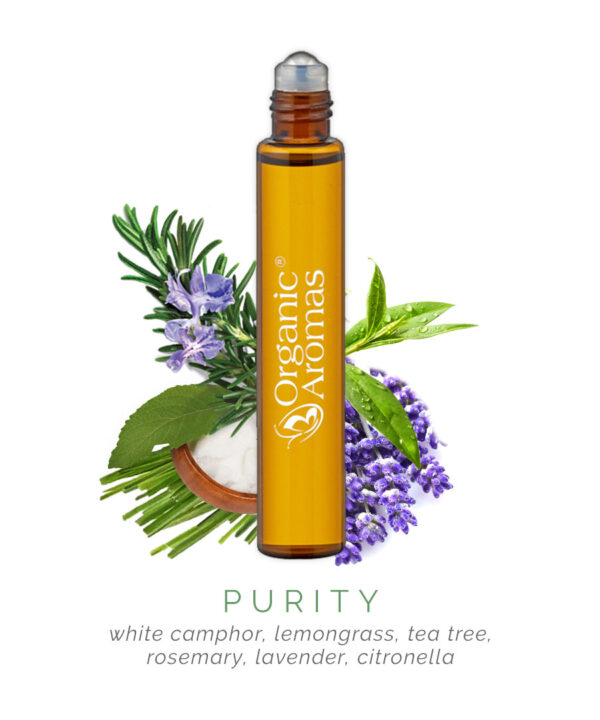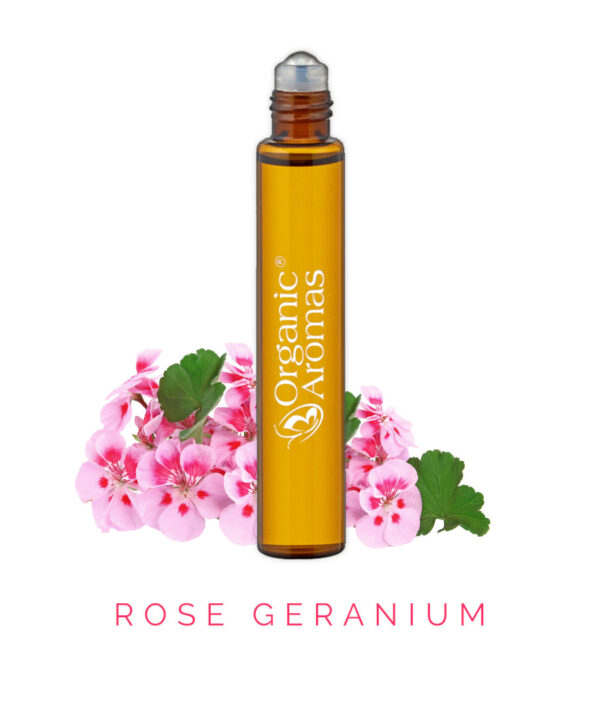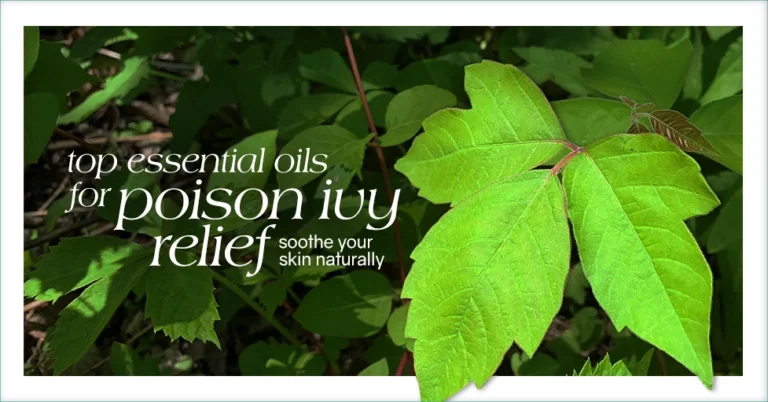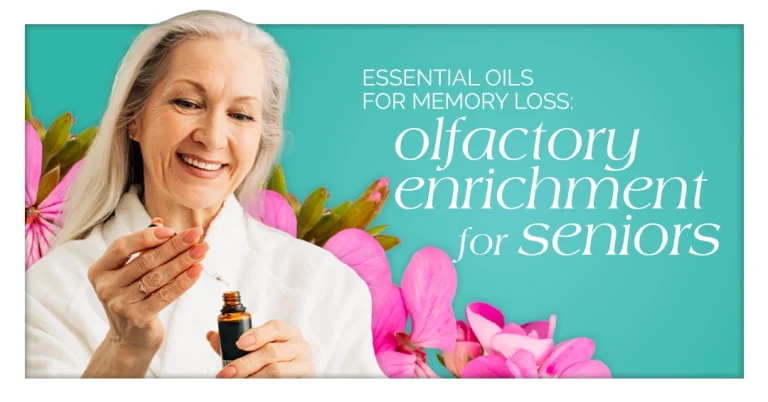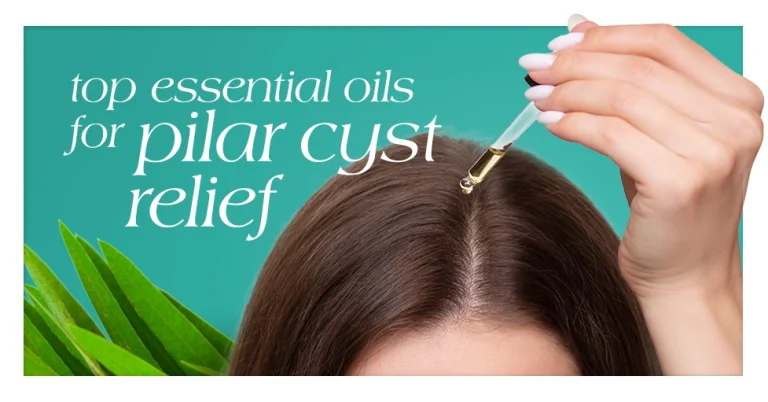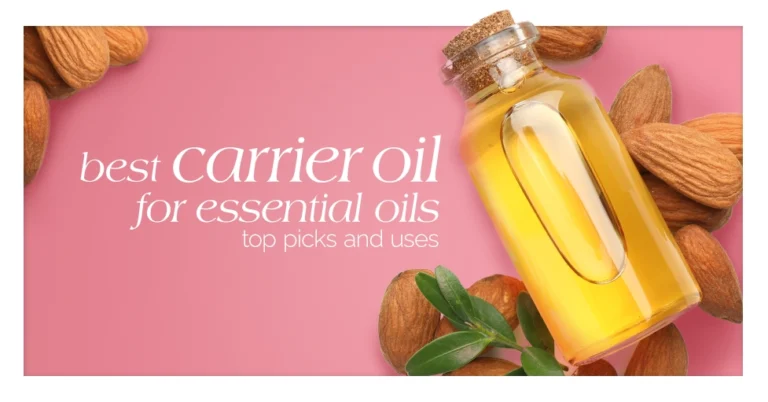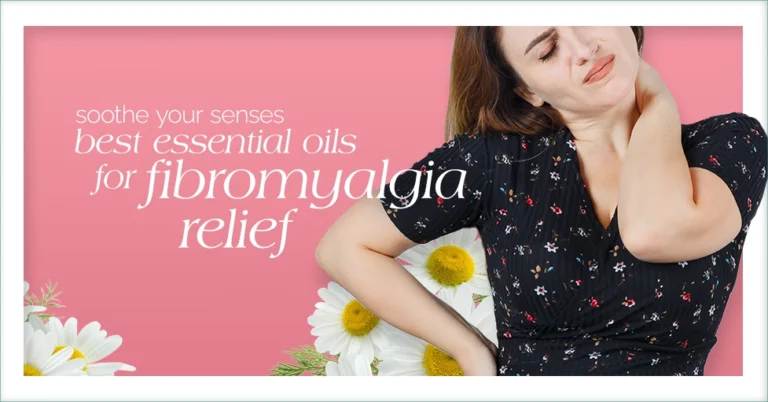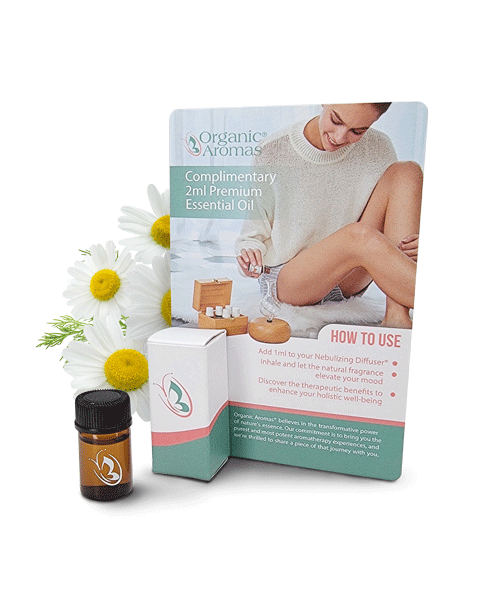Discover the Best Essential Oils for Stress Relief and Calm
Struggling with stress? Essential oils might be the soothing solution you need. Extracted from plants, these oils can help reduce stress and promote relaxation. In this article, we’ll reveal which essential oils for reducing stress are most effective and how you can use them to find calm in the chaos. Let’s uncover the role of these aromatic oils in managing stress.
Aroma Highlights: Sniff, Relax, Repeat!
Here we list the key elements you need to understand about the Best Essential Oils for Stress:
Harnessing Nature’s Power: Essential Oils for Stress
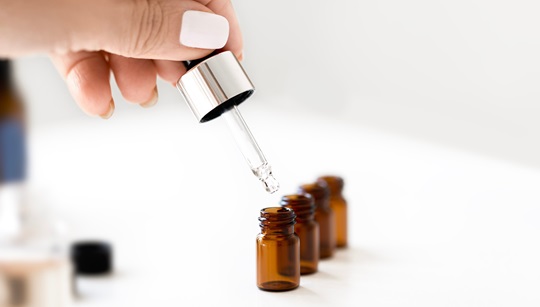
Essential oils offer a natural way to alleviate anxiety, promote relaxation, and enhance overall well-being. They harness the power of nature, allowing us to tap into the healing properties of plants. Extracted from flowers, leaves, stems, bark, roots, or fruits, these oils carry the plant’s scent, also known as its “essence.” This essence interacts with our bodies in various ways, providing a range of health benefits, including:
[ays_survey id=’3′]
Take clary sage essential oil, for example, it’s well-regarded for its calming influence and capacity to lower blood pressure. So, what is the mechanism behind essential oils’ stress-relieving properties, and which ones should be your go-to for optimal results? Delve with us into this topic.
The Essence of Relief: How Essential Oils Work
Essential oils work on the principle of aromatherapy, a holistic healing treatment that uses natural plant extracts to promote health and well-being. When you inhale the aroma of an essential oil, the scent molecules enter your nostrils and stimulate your olfactory system, which is linked to the limbic system – the part of your brain responsible for emotions, behaviors, and memory. This interaction triggers emotional and physiological responses that can help reduce feelings of stress and anxiety.
Consider, for instance, the clary sage essential oil, also known as clary sage oil, and frankincense essential oil, both celebrated for their soothing impact on the mind and body, fostering an environment of serenity and peace.
Best Essential Oils for Stress: Having an Essential Oil Roller Handy at Work Can Be a Big Help
Selecting Your Soothing Scents: Top Essential Oils for Stress
While many essential oils have anxiety-reducing properties, some are particularly effective in combating stress. Here we recommend essential oils that can help with stress relief:
Bear in mind, however, that individuals react differently to essential oils, making it vital to experiment with various oils to discover the best essential oils that serve your needs best.
Understanding the Science: Key Compounds in Essential Oils for Stress Relief
Lavender Oil (Linalool and Linalyl Acetate): These compounds increase GABA activity in the brain, leading to reduced anxiety and a more relaxed state. They also lower cortisol levels, a primary stress hormone, contributing to stress reduction. Studies have shown the impact of linalool on reducing stress markers like cortisol.1
Bergamot Oil (Limonene and Alpha-Pinene): These constituents have anxiolytic effects by modulating neurotransmitter levels, particularly serotonin and dopamine, which are crucial for mood regulation.
Chamomile Oil (Isobutyl Angelate and Isoamyl Angelate): Known for their anti-inflammatory properties, these esters help reduce stress-induced inflammation in the body, promoting relaxation and calmness. A systematic review and meta-analysis demonstrated chamomile’s efficacy in improving sleep quality and reducing symptoms of generalized anxiety disorder.2
Patchouli Oil (Sesquiterpenes): These compounds interact with neurotransmitters, have anti-inflammatory properties, and affect the limbic system, leading to reduced stress and anxiety. Research on β-patchoulene, a sesquiterpene in Patchouli oil, has shown significant anti-inflammatory activity, providing a basis for its use in traditional medicine for treating inflammatory diseases.3
Crafting Your Calm: Methods to Use Essential Oils for Stress

Having delved into the workings of essential oils and highlighted some top choices for stress relief, let’s now look at their effective usage. There are several ways to experience the benefits of essential oils – by inhaling them, applying them topically to your skin, or diffusing them in your surroundings. Each method allows the oils to interact with your body in different ways, providing a range of effects that can help alleviate stress and promote relaxation.
Having delved into the workings of essential oils and highlighted some top choices for stress relief, let’s now look at their effective usage. There are several ways to experience the benefits of essential oils – by inhaling them, applying them topically to your skin, or diffusing them in your surroundings. Each method allows the oils to interact with your body in different ways, providing a range of effects that can help alleviate stress and promote relaxation.
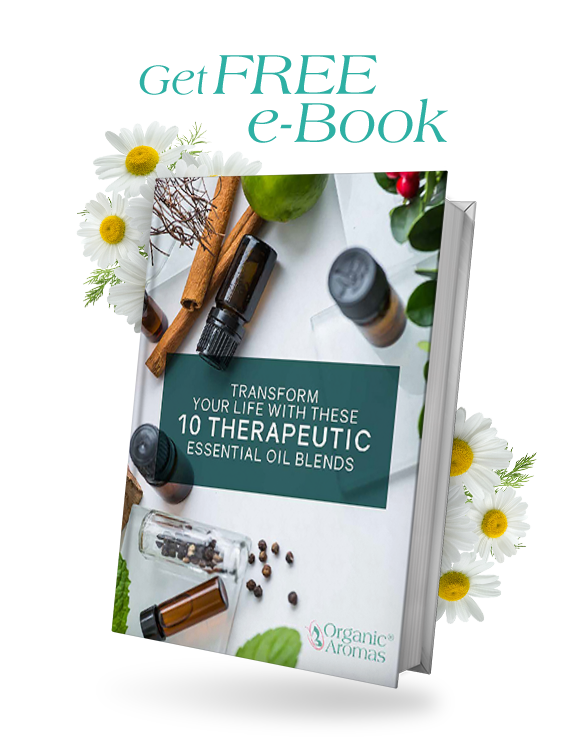
Sign Up to Get Your FREE Essential Oils e-Book Here
A Breath of Fresh Air: Essential Oil Inhalation
Inhaling essential oils is one of the quickest ways to experience their benefits. When you breathe in the aroma of an essential oil, its scent molecules travel from your olfactory nerves directly to your brain, where they impact your emotions and cognitive function. This can trigger a relaxation response in your body, helping to reduce stress and promote a sense of calm.
Many individuals find it beneficial to place a few drops of essential oil on a tissue or cotton ball, inhaling the aroma whenever stress or anxiety levels rise.
Touching Tranquility: Topical Application of Essential Oils
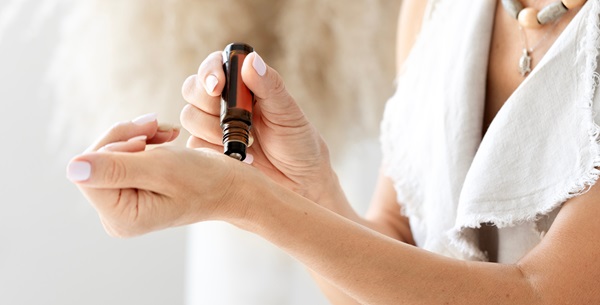
Topical application is another effective method for using essential oils. When applied to the skin, essential oils are absorbed into your bloodstream, where they can exert their effects on various parts of your body. This can be particularly beneficial for stress relief, as many essential oils have a calming effect and soothing properties.
To use essential oils topically, they should be diluted with a carrier oil like a coconut oil or almond oil to prevent skin irritation. The diluted oil can then be applied to pressure points on your body, such as your wrists, temples, or the back of your neck, for stress relief.
Creating a Calming Atmosphere: Essential Oil Diffusion
Diffusing essential oils in your surroundings is another excellent way to reap their stress-relieving benefits. This method involves dispersing the essential oil into the air, creating a calming atmosphere that can help reduce anxiety and promote relaxation. There are various types of essential oil diffusers available, including ultrasonic diffusers, nebulizing diffusers, and heat diffusers. Each has its own advantages, but all work to fill your space with the soothing aroma of essential oils, helping to create a tranquil environment that can support stress reduction.
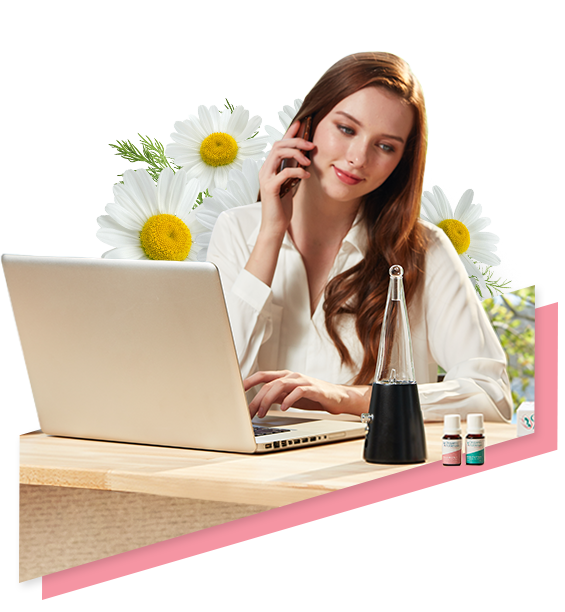
Join Our Exclusive Member Club to get Big Discounts!

The Role of Aromatherapy in Mental Health Treatment
Although essential oils can be instrumental in stress management, it’s worth noting that they are not a panacea. Aromatherapy can be a powerful complement to traditional mental health treatments, but it’s not a substitute for professional care.
If you’re grappling with persistent stress or a mental health disorder, consulting with a healthcare professional or mental health expert is crucial. They can provide guidance on how to integrate essential oils into your treatment plan in a way that’s safe and effective.
Consultation with Mental Health Professionals

Prior to embarking on any new treatment regime, including aromatherapy, it’s imperative to seek advice from a mental health professional. They can provide personalized advice based on your specific needs and circumstances, helping ensure that you’re using essential oils in a way that’s safe and beneficial for you. It’s also a good idea to discuss any potential interactions with medications or other treatments you’re currently using.
Remember, while essential oils can offer many benefits, they’re most effective when used as part of a comprehensive approach to mental health care, such as in a mental health treatment center.
Integrating Essential Oils with Other Treatments
Essential oils can complement other treatments, playing a supportive role in stress management and mental health improvement. For instance, you might incorporate aromatherapy into your daily mindfulness practice, using calming essential oils like lavender or chamomile to enhance your relaxation. Or you might use uplifting oils like citrus or peppermint to boost your mood during physical activity.
The key is to find a balance that works for you, integrating essential oils in a way that enhances your overall well-being without causing undue stress or discomfort.
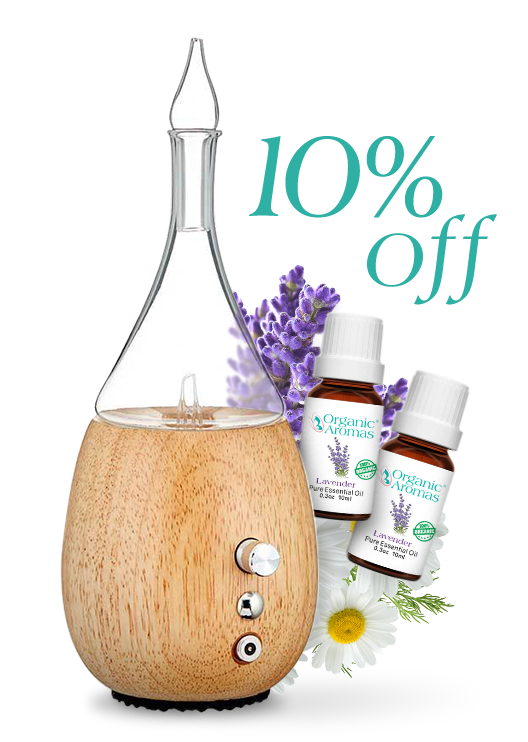
Join Now and Get a Coupon for 10% Off!
Safety First: Best Practices for Using Essential Oils
Like any other treatment, the paramount concern when using essential oils should always be safety. While essential oils are generally safe when used properly, they can cause adverse reactions in some people. That’s why it’s important to follow best practices to apply essential oils, such as diluting essential oils before topical application, moderating your exposure to essential oil aromas, and recognizing and managing any potential side effects.
Diluting Essential Oils: The Importance of Carrier Oils
Dilution ranks among the key safety practices when using essential oils. Essential oils are highly concentrated and can cause skin irritation or sensitivity if applied directly to the skin. That’s why it’s important to dilute them with a carrier oil, such as coconut or almond oil, before topical application. This helps to spread the essential oil over a larger area of skin and reduces the risk of irritation.
Go Slow: Moderate and Vary Your Exposure to Essential Oils Aroma
Regulating your exposure to essential oil aromas is also crucial. While it might be tempting to fill your home with the calming scent of lavender or the uplifting aroma of citrus, overexposure can lead to desensitization, meaning you might not get the same therapeutic benefits over time.
Recognizing and Managing Side Effects

Despite their general safety, essential oils can cause side effects in certain individuals. These can range from mild skin irritation to more serious allergic reactions. If you notice any adverse reactions after using an essential oil, it’s important to stop using it immediately and consult a healthcare professional.
It’s also a good idea to do a patch test before using a new essential oil for the first time, by applying a small amount to a patch of skin and waiting to see if any reaction occurs.
Enhancing Well-Being: Additional Benefits of Essential Oils
Apart from stress relief, essential oils provide a plethora of additional benefits that can boost your overall well-being. From boosting cognitive function and mood to supporting physical health, these natural plant extracts have a lot to offer.
Let’s probe further into these extra advantages and examine how essential oils can pave the way to a healthier, more content you.
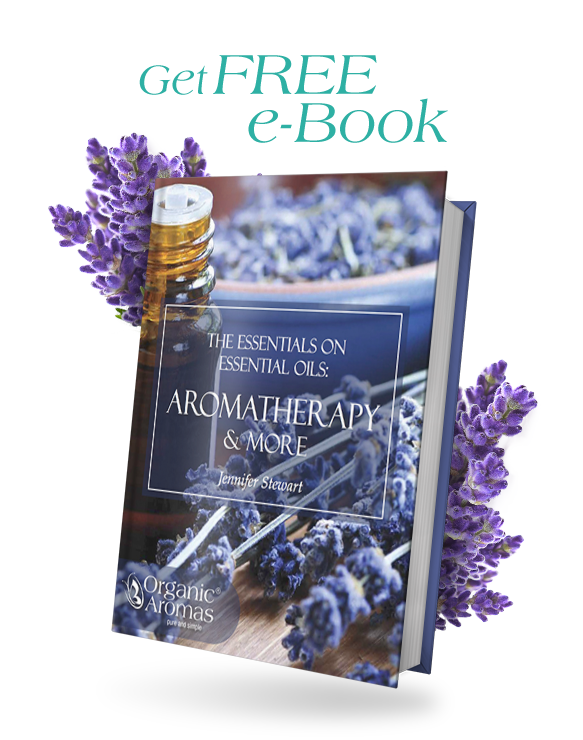
Sign Up to Get Your FREE
e-Book Here…
Boosting Cognitive Function and Mood
Essential oils have the potential to positively influence your cognitive function and mood. For instance, rosemary essential oil is known for its ability to enhance memory and concentration, making it a great choice for those times when you need a mental boost.
On the other hand, lavender oil, bergamot essential oils, sweet basil oil, orange essential oil, and lemon essential oil, which are popular essential oils for anxiety, are known for their mood-enhancing properties, helping to uplift your spirits and reduce feelings of stress and anxiety.

Supporting Physical Health
Beyond their mental and emotional advantages, essential oils also lend support to your physical health. For instance, some essential oils have anti-inflammatory properties, helping to reduce inflammation and discomfort. Others, like lavender and chamomile, can promote better sleep, an important factor in overall health and well-being.
Whether it’s soothing aching muscles, promoting better digestion, or boosting your immune system, essential oils offer a variety of physical health benefits that can contribute to a healthier lifestyle.
Using a Nebulizing Diffuser to Help Beat the Blues
For those aspiring to fully leverage the benefits of essential oils, a nebulizing diffuser can be transformative. Unlike traditional diffusers that use water or heat to disperse essential oils into the air, nebulizing diffusers use a high-speed, vibration-based mechanism to create a fine mist of pure essential oils.
This method of diffusion preserves the therapeutic properties of the oils, providing a more powerful and effective aromatherapy experience.
The Fastest and Most Effective Method for Delivery
A nebulizing diffuser enables you to reap the benefits of essential oils rapidly and efficiently. The fine mist produced by the diffuser is easily inhaled and absorbed by your body, allowing you to experience the calming and stress-relieving effects of the oils almost immediately. This makes it an excellent choice for those times when you need quick relief from stress or anxiety.

An Organic Aromas Nebulizing Diffuser Can Make a Difference
If you’re considering investing in a nebulizing diffuser, the Organic Aromas Nebulizing Diffuser is a great option. Renowned for its power and aesthetic appeal, this diffuser uses cold, pressurized air to atomize a micro-fine mist of pure essential oils into the air. This method not only preserves the therapeutic properties of the oils but also creates a more potent aroma, enhancing your aromatherapy experience.
Personalizing Your Aromatherapy Experience
While the market is teeming with pre-blended essential oils, concocting your own blends offers a fulfilling way to customize your aromatherapy journey. This allows you to tailor the effects to your specific needs, whether you’re looking for a natural remedy for stress relief, improved focus, or a mood boost. Further, integrating essential oils into your daily self-care rituals can amplify their benefits.
DIY Stress-Relief Blends
Crafting your own stress-relief concoctions can be as effortless as blending a few drops of your favored essential oils. Try combining calming lavender and lemon oil or other uplifting citrus for a blend that soothes stress while boosting your mood. Or mix grounding sandalwood essential oil with invigorating peppermint for a blend that promotes focus and relaxation. The possibilities are endless, and the process of creating your own blends can be a therapeutic activity in itself.
Honorable Mention: Additional Essential Oils for Generalized Anxiety Disorder
1. Frankincense Essential Oil: Known for its grounding and calming properties, Frankincense oil contains compounds like alpha-pinene and limonene. These contribute to its effectiveness in reducing anxiety and stress, potentially by affecting neurotransmitter systems and promoting mental clarity.
2. Lemongrass Essential Oil: With its refreshing and citrusy aroma, Lemongrass oil is often used to relieve anxiety and stress. Citral, a key component in Lemongrass, is thought to have calming effects on the mind and body.
3. Geranium Oil: Geranium oil, with its floral and sweet aroma, is believed to help balance emotions and relieve anxiety. Its key components, citronellol and geraniol, are thought to have a calming effect on the nervous system, making it beneficial for reducing feelings of stress and anxiety.
Scented Self-Care Routines
Infusing essential oils into your self-care rituals is an effective strategy to fully harness their stress-relieving benefits. Try adding a few drops of lavender essential oil to a warm foot bath, or a warm bath in general, for a relaxing soak, or massage your feet with a blend of chamomile and carrier oil before bed to promote restful sleep.
You can also diffuse essential oils during yoga or meditation to enhance the calming effects of these practices.
One Tool in a Larger Stress Management Toolbox
In this exploration of essential oils for stress relief, we’ve uncovered the power of nature’s bounty in promoting mental, emotional, and physical well-being. From understanding how essential oils work to relieve stress to learning how to use and blend them effectively, we’ve equipped ourselves with the knowledge to harness their therapeutic potential. However, remember that while essential oils can be a powerful tool in your stress management toolbox, they should be used safely and as part of a balanced approach to wellness. As we navigate the challenges of our modern world, may we find solace and strength in the soothing scents of nature’s garden.
Frequently Asked Questions
What essential oil is best for stress?
Lavender essential oil is best for stress relief. It has calming properties that can help reduce stress and relieve anxiety too.
How do you release stress from your body?
To release stress from your body, practice deep breathing exercises to activate your body’s natural ability to relax and send more oxygen to your brain. This can help change your body’s response to stress and create a state of deep rest.
How do essential oils work to relieve stress?
Essential oils work by producing fragrance molecules that interact with the olfactory system, triggering responses in the brain associated with emotions and memories, which can lead to mental relaxation or revitalization.
- Hongratanaworakit, T., & Buchbauer, G. (2018). Effects of Fragrance Inhalation on Sympathetic Activity in Normal Adults. Journal of Evidence-Based Complementary & Alternative Medicine, 23, 26-32. doi: 10.1177/2156587218756514
- Therapeutic efficacy and safety of chamomile for state anxiety, Adelphi et al., 2019, DOI: 10.1002/ptr.6349
- Li, X., He, T., Wang, X., Shen, M., Yan, X., Fan, S., Wang, L., Sun, Y., Yu, Z., & Sun, X. (2016). Anti-inflammatory activity of β-patchoulene isolated from patchouli oil in mice. European Journal of Pharmacology, 781, 229-238. doi: 10.1016/j.ejphar.2016.04.028

